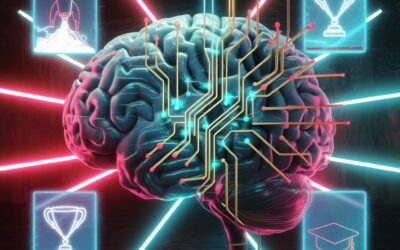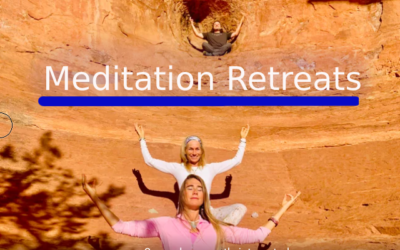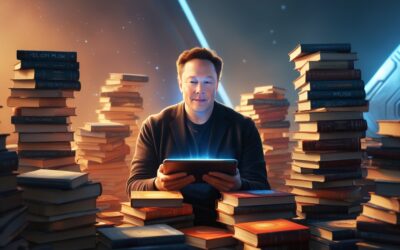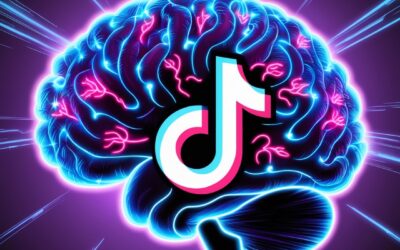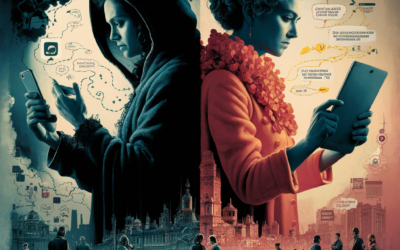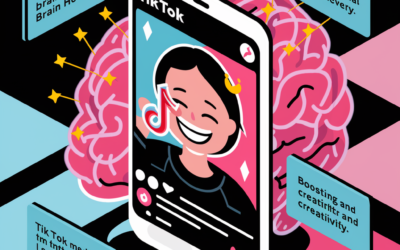How to improve sleep is a common search along with ways for getting better sleep.
To find the answer, a sleep expert is required.
Matt Walker, professor of neuroscience at the University of California, Berkeley and author of the book ‘Why We Sleep’ shares how to improve your sleep
and describes why these triggers work so you will know how to fall asleep faster.
And first he talks about a very popular drug that lots of people take multiple times daily, which is caffeine.
Caffeine is a misunderstood drug.
It's what we call a psychoactive stimulant.
Probably the second most traded commodity on the surface of the planet after oil.
Most drugs have what we call a half-life (the amount of time it takes
for half of that drug to be essentially excreted out your system).
Caffeine has a half-life of about six or seven hours and it's dependent on what type of gene that you have to metabolize the caffeine.
Caffeine has a quarter life of about 12 hours.
If you have a cup of coffee at noon, a quarter of that caffeine is still circulating around your brain at midnight.
That’s akin to the equivalent of getting into bed and just before you turn the light out you swig a quarter of a cup of Starbucks and you hope for a good night
of sleep.
That's exactly unfortunately what people do, completely innocently, by drinking caffeine too late in the afternoon.
A way to quantify this is the data from the financial times.
The number of Starbucks coffee houses that have arisen over the past 30 years is just like an exponential increase and I think that is an expression of how we're self-medicating our state of sleep deprivation in developed nations.
It is a psychoactive substance that we use liberally.
We let our children have it. We often don't think about the implications of that and so many patients of mine tell me that 'doctor, actually I know if caffeine can be a problem for some people. I’m not one of those caffeine is fine for me' but more often than not when they either reduce their intake or cut it out completely, the sleep quality goes up and I’ve got more energy and my productivity dramatically increases and I think that says it all.
Parents probably don't understand the impact of caffeine in that regard.
Second point comes to some people who say look ‘I’m one of those people who can drink a cup of coffee in the evening have an espresso after dinner and I fall asleep fine and I stay asleep.’
Even if that's true, there was an alarming study that was done where they gave people just one single cup of coffee, a dose of 200 milligrams of caffeine, standard cup of coffee, and then they measured the quality of their deep sleep by tracking these big powerful brain waves.
These glorious beautiful deep brain waves that bathe all of our brain during deep sleep at night and it helps also restore the body.
They found that just one dose of caffeine in the evening decreased the amount of deep sleep by 20%.
You would have to normally age by about 15 years to produce that type of a deficit in your deep sleep or you can do it every single night by having a cup of coffee.
Those people will wake up the next morning, they won't remember waking up because they may not have woken up, but the quality of their deep sleep was so poor that they will still then feel unrestored and unrefreshed by their sleep.
Here is the irony, now they're starting to reach for two cups of coffee rather than one and so develops this dependency cycle, this sort of addiction spiral as it were.
I think people are perhaps unaware of the the true impact of caffeine, how long it sticks around within your system and even if you feel that you're immune to that evening cup of coffee, how it will still impact your sleep even though consciously you know nothing about it.
I go out with friends and we grab coffee all the time and I love that and I want people to embrace it because I think it's
fantastic that there's a social movement.
I would say though that decaffeinated coffee is actually really quite good and I’d love to do the Coke/Pepsi challenge with
decaf and caffeinated. Just in terms of the taste you will probably notice that it wouldn't give you sort of the shakes or that sort of slightly anxious state and you probably know the difference.
I’ve really become enamored with decaffeinated coffee and all of its flavors and I love the cafe bar culture.
I remember about a month after my book came out, someone tweeted me and said ‘I never ever thought that caffeine was a problem for me but I’ve read your book I’ve taken a recommendation, I now only have two cups of coffee and I have it before noon and i've never slept this well in over 30 years.’
Incredible how such a common thing that people are doing day to day may be impacting our sleeping.
I think it's like a self-fulfilling prophecy, the more caffeine you drink, the more you need, the more dependent you become, the less good your sleep is.
I think we also have to highlight we're talking about coffee but i think tea would be similar because it contains caffeine.
Green tea, a herbal tea that often people switch to when they're not having tea or coffee is also a highly caffeinated drink so may affect you.
I think just seeing the data and then doing those types of studies ourselves and particularly the finding that we discussed, where even if you're asleep the quality of that sleep is just not as deep.
That really got me concerned and that's when I really started to pay attention to my to my caffeine content.
I drink decaffeinated tea and i drink decaffeinated coffee, I've ebbed and flowed between sort of having coffee in the morning because I do feel it's it's alerting benefits but we didn't necessarily evolve to be medicated with caffeine.
I think anyone who's drinking caffeine at 11am which on the basis of your circadian rhythm is right around sort of the 11 o'clock period that's when it should be almost impossible for you to fall asleep.
I sometimes look around on an airplane when I’m leaving and people half the plane is asleep at 11 o'clock and if you're self-medicating, your sleep deprivation at 11am with caffeine, it usually means that you're perhaps just not getting enough sleep and that's probably been one of the greatest influential factors.
That and the impact on my productivity i think that was the the most underrated and it actually forced me to start doing a lot of research on
sleepless and productivity.
My ability to maintain focus and produce high quality output work is dramatically dependent on the sleep that i've been having
at night .
Here's five things that you can do just out the gate to get better sleep.
Regularity is probably the most important thing.
I can tell you go to bed at the same time wake up at the same time, no matter whether it's the weekend, weekday, regularity is key.
We've spoken about light.
For example, in the last hour before bed try to stay away from
screens but also just switch off half the lights in the house.
They've done some great studies where they would take people out into the Rockies, no electric light, no electricity whatsoever.
And they started to go to bed two hours earlier than the acclaimed natural bedtime.
It wasn't just because they didn't have anything necessarily to do, it was that their melatonin was rising, two hours earlier. So, keep it dark.
Third is probably keep it cool.
Your brain actually needs to drop its temperature by about two to three degrees Fahrenheit to initiate sleep.
That's the reason that you will always find it easier to fall asleep in a room that's too cold than too hot.
The evidence is pretty good that cooling the body actually works.
In the book I write about a series of studies where they had people in, it's almost like a wetsuit but it has all of these veins running through it and they could actually perfuse warm or cold water into any part of the body, hands, core of the body, feet, and could effectively cool the body down and it instantaneously made people fall asleep faster and it gave them deeper non-REM sleep, that sort of restorative sleep for the body.
You can even look at studies where people sleep semi-naked and that also seems to improve their sleep.
And they get a little bit more deep sleep too. So cold is better.
The paradox here though is that you need to warm your feet and your hands to kind of charm the blood away from your core, out to the surface and radiate that heat. Or better still, have a hot bath evidence here too that I discuss where people say ‘I get out of a hot bath I feel nice and toasty
and relaxed and that's why I fall asleep.’ It's the opposite when you get into a bath you get vasodilation all you sort of get rosy cheeks, red skin, all of the blood rushes to the surface, you get out of the bath and you have this massive thermal dump of heat that just evacuates from the body.
Your core body temperature plummets and that's why you sleep better.
You can hack the system very easily.
If you look at hunter-gatherer tribes whose way of life has not changed for thousands of years and you ask how do they sleep one of the things that seems to dictate their sleep is the rise and fall of temperature. Temperature is its lowest in the nadir of the night, 3:00 or 4:00 in the morning and as that climate temperature starts to drop, that's when they start to get drowsy.
As the temperature is just sort of signalling to the brain, now it's time to sleep.
So light, as well as temperature, are two key triggers to help you get better sleep.
If you look at those tribes by the way and when they go to sleep and they wake up.
They go to sleep probably at two hours after dusk, sort of 8 to 9 in the evening, wake up about half an hour, even an hour before dawn.
It's the rise in temperature, rather than light that triggers their awakening, but in modernity we've been dislocated from our natural rhythms and now midnight has become the time when we think ‘I should
check Facebook last time , I should send my last email.’
That wasn't that is not how we were designed to sleep and in fact we may also have been designed to sleep bi-phasically too if you look at those
hunter-gatherers they don't sleep one long bout of eight hours at night.
There was a time in sort of the Dickensian era where people would sleep for the first half of the night maybe sort of four hours or so then they would wake up they would socialize they would eat they would really love and then they would go back and have a second sleep.
if you look at natural biological rhythms in the brain and the body that doesn't really seem to be how you were designed.
It certainly seems to be something that we did in society, but I think it's more of a societal trend than it was a biological edict.
However we do seem to have two sleep periods the way that we were designed.
Those tribes will often sleep about six and a half hours, seven hours of sleep at night and then, especially in the summer they'll have that siesta like behavior in the afternoon.
All of us have that, sort of the postprandial dip in alertness, just means after lunch,
And if I measure your brainwave activity with electrodes I can see a drop in your physiological alertness somewhere, between 2:00 to 4:00 p.m. in the afternoon.
You can actually just have people fast, in sort of well, fasting for long periods of time actually makes you sleep much worse, but you can have people
abstain from lunch and you still get that drop. So it's independent of food.
It's a genetically hardwired pre-programmed drop that suggests we should be sleeping bi-phasically.
For more about why we sleep, checkout Matthew Walkers book!

